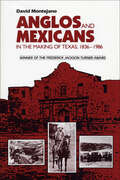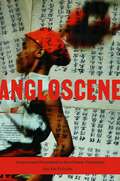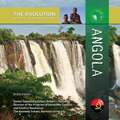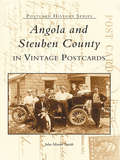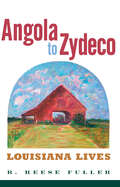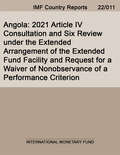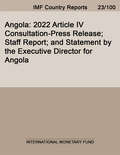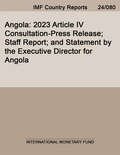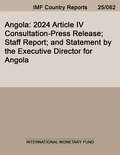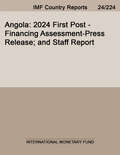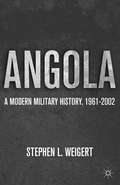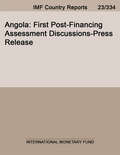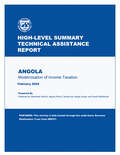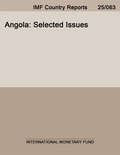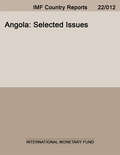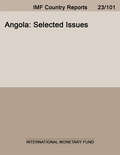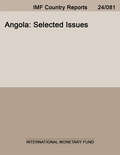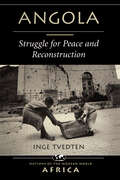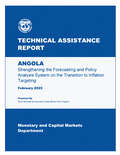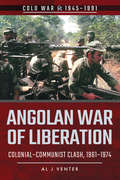- Table View
- List View
Anglos and Mexicans in the Making of Texas, 1836-1986
by David MontejanoThe author sets out to answer questions "that 'grew up' with me, questions about the Texas world I came to know as a fourth-generation native. The most prominent feature of this world was the sharp division between Anglo and Mexican in schools, neighborhoods, and social life generally. What were the origins of such segregation? And why, during the past twenty years, was this segregated order apparently breaking down?" -- from the Acknowledgements.<P> The author explains in the introduction that "two major concerns guided this work. One was to reconstruct a history of Mexican-Anglo relations in Texas 'since the Alamo.'" The "second major concern, then, was to ask this history some sociological questions about ethnicity, social change, and society itself." <P> Winner of the Frederick Jackson Turner Award
Anglos and Mexicans in the Making of Texas, 1836–1986
by David Montejano&“A benchmark publication . . . A meticulously documented work that provides an alternative interpretation and revisionist view of Mexican-Anglo relations.&” –IMR (International Migration Review) Winner, Frederick Jackson Turner Award, Organization of American Historians American Historical Association, Pacific Branch Book Award Texas Institute of Letters Friends of The Dallas Public Library Award Texas Historical Commission T. R. Fehrenbach Award, Best Ethnic, Minority, and Women&’s History Publication Here is a different kind of history, an interpretive history that outlines the connections between the past and the present while maintaining a focus on Mexican-Anglo relations. This book reconstructs a history of Mexican-Anglo relations in Texas &“since the Alamo,&” while asking this history some sociology questions about ethnicity, social change, and society itself. In one sense, it can be described as a southwestern history about nation building, economic development, and ethnic relations. In a more comparative manner, the history points to the familiar experience of conflict and accommodation between distinct societies and peoples throughout the world. Organized to describe the sequence of class orders and the corresponding change in Mexican-Anglo relations, it is divided into four periods, which are referred to as incorporation, reconstruction, segregation, and integration. &“The success of this award-winning book is in its honesty, scholarly objectivity, and daring, in the sense that it debunks the old Texas nationalism that sought to create anti-Mexican attitudes both in Texas and the Greater Southwest.&” —Colonial Latin American Historical Review &“An outstanding contribution to U.S. Southwest studies, Chicano history, and race relations . . . A seminal book.&” –Hispanic American Historical Review
Angloscene: Compromised Personhood in Afro-Chinese Translations
by Jay Ke-SchutteA free ebook version of this title is available through Luminos, University of California Press’s Open Access publishing program. Visit www.luminosoa.org to learn more.Angloscene examines Afro-Chinese interactions within Beijing's aspirationally cosmopolitan student class. Jay Ke-Schutte explores the ways in which many contemporary interactions between Chinese and African university students are mediated through complex intersectional relationships with whiteness, the English language, and cosmopolitan aspiration. At the heart of these tensions, a question persistently emerges: How does English become more than a language—and whiteness more than a race? Engaging in this inquiry, Ke-Schutte explores twenty-first century Afro-Chinese encounters as translational events that diagram the discursive contours of a changing transnational political order—one that will certainly be shaped by African and Chinese relations.
Angola (The Evolution of Africa's Major Nations)
by Rob StaegerThe modern state of Angola was established in 1975, when it won its freedom from Portugal. However, peace did not accompany Angola's independence. Instead, fighting between nationalist groups launched the country into nearly three decades of civil war. Although the civil war ended a decade ago, its effects are still being felt. Angola's people are among the poorest in the world, and it is home to more land mines than any other country. Angola does have some advantages, including vast reserves of diamonds and oil. Angolans hope to use the wealth from these resources to rebuild their shattered society.
Angola and Steuben County in Vintage Postcards: In Vintage Postcards (Postcard History Series)
by John Martin SmithPast visitors to the famous lakes of Steuben County had a wide range of interesting images on postcards to send back home or to add to their collections. The favorite locations and activities of vacationers were chronicled in the postcards that have been passed down through generations.Featuring more than 200 vintage postcards, Angola and Steuben County captures fleeting images that reflect the interesting and significant scenes of Steuben County's towns and day-to-day activities at the turn of the century. From thriving squares and bustling industries, to pleasant residential and lake areas, these postcards embrace the past and offer a glimpse into the lives and activities of a different era.
Angola and the Resource Curse
by Jonathan Schlefer Aldo Musacchio Eric WerkerSince emerging from decades of conflict in 2002, Angola has been growing at a scorching double-digit rate, led by its oil industry. But the nation remains beset with seemingly intractable problems: immense inequality, low life expectancy, a non-diversified economy, and constant grumblings of corruption. The global financial crisis and subsequent fall in state oil revenue drives a loan-seeking Angola towards either the IMF, who demand extensive reforms, or the Chinese, who seek to take a direct stake in the nation's recovery. The case explores the dynamics of post-conflict recovery as well as the challenges associated with a reliance on oil wealth, including the resource curse and Dutch disease.
Angola to Zydeco: Louisiana Lives
by R. Reese FullerAngola to Zydeco: Louisiana Lives is a collection of creative nonfiction pieces about the lively personalities who call south Louisiana home. Originally published in newspapers based in Lafayette—Times of Acadiana and Independent Weekly—the twenty-five profiles and features provide intriguing glimpses into the lives of well-known Louisianans such as James Lee Burke, Ernest J. Gaines, Elemore Morgan Jr., Buckwheat Zydeco, Marc Savoy, Boozoo Chavis, Calvin Borel, Santy Runyon, and Eddie Shuler. Author R. Reese Fuller also details the sometimes zany and sometimes tragic subjects that populate the cultural landscape of south Louisiana, from Tabasco peppers to Angola prison to cockfighting. Fuller brings years of experience in the newspaper industry to bear on this collection, offering behind-the-scenes access not available elsewhere. Of particular note are his interviews with musicians and local celebrities, who reveal how their love of the region has influenced their work. Fuller’s natural approach to storytelling creates a book that is a joy to read and truly represents the people of south Louisiana.
Angola's Fragile Stabilization
by Gonzalo Pastor Jose Giancarlo GashaA report from the International Monetary Fund.
Angola: 2021 Article IV Consultation and Six Review under the Extended Arrangement of the Extended Fund Facility and Request for a Waiver of Nonobservance of a Performance Criterion (Imf Staff Country Reports)
by International Monetary Fund. African Dept.A report from the International Monetary Fund.
Angola: 2022 Article IV Consultation-Press Release; Staff Report; and Statement by the Executive Director for Angola
by International Monetary Fund. African Dept.A report from the International Monetary Fund.
Angola: 2023 Article IV Consultation-Press Release; Staff Report; and Statement by the Executive Director for Angola
by International Monetary Fund. African Dept.A report from the International Monetary Fund.
Angola: 2024 Article IV Consultation-Press Release; Staff Report; and Statement by the Executive Director for Angola
by International Monetary Fund. African Dept.A report from the International Monetary Fund.
Angola: 2024 First Post-Financing Assessment-Press Release; and Staff Report
by International Monetary Fund. African Dept.A report from the International Monetary Fund.
Angola: A Modern Military History, 1961-2002
by Stephen L. WeigertThis study is the first comprehensive assessment of warfare in Angola to cover all three phases of the nation's modern history: the anti-colonial struggle, the Cold War phase, and the post-Cold War era. It also covers, in detail, the final phase of warfare in Angola, culminating in Jonas Savimbi's death and the signing of the Luena Accord
Angola: First Post-financing Assessment Discussions-press Release (Imf Staff Country Reports)
by International Monetary Fund. African Dept.A report from the International Monetary Fund.
Angola: Modernization Of Income Taxation (High-level Summary Technical Assistance Reports)
by WentworthA report from the International Monetary Fund.
Angola: Selected Issues
by International Monetary Fund. African Dept.A report from the International Monetary Fund.
Angola: Selected Issues Paper (Imf Staff Country Reports #Country Report No. 14/275)
by International Monetary Fund. African Dept.A report from the International Monetary Fund.
Angola: Selected Issues Paper (Imf Staff Country Reports #Country Report No. 14/275)
by International Monetary Fund. African Dept.A report from the International Monetary Fund.
Angola: Selected Issues Paper (Imf Staff Country Reports #Country Report No. 14/275)
by International Monetary Fund. African Dept.A report from the International Monetary Fund.
Angola: Selected Issues and Statistical Appendix
by International Monetary FundA report from the International Monetary Fund.
Angola: Struggle For Peace And Reconstruction (Nations of the Modern World: Africa)
by Inge TvedtenAfter more than twenty years of devastating civil war, Angola is slowly moving toward peace and reconciliation. In this accessible introduction to one of the most resource-rich countries in Africa, Inge Tvedten traces Angola's turbulent past, with a particular focus on the impacts that political and economic upheaval have had on the Angolan people. First, Tvedten reviews five centuries of Portuguese colonial rule, which drained Angola's resources through slavery and exploitation. He then turns to the postindependence period, in which the country became a Cold War staging ground and its attempts to democratize collapsed when the rebel movement UNITA, supported by the United States, took the country back to war after electoral defeat. Tvedten shows how the colonial legacy and decades of war turned Angola into one of the ten poorest in the world, despite considerable oil resources, huge hydroelectric potential, vast and fertile agricultural lands, and some of Africa's most productive fishing waters. Finally, Tvedten argues that peace and prosperity for Angola are possible but constructive international support will be crucial.
Angola: Technical Assistance Report-Strengthening the Forecasting and Policy Analysis System on the Transition to Inflation Targeting
by International Monetary Fund. Monetary and Capital Markets DepartmentA report from the International Monetary Fund.
Angolan War of Liberation: Colonial–Communist Clash, 1961–1974 (Cold War, 1945–1991)
by Al J. VenterWhen a large group of rebels invaded Angola from a recently independent Congo in 1961, it heralded the opening shots in another African war of independence. Between 1961 and 1974, Portugal faced the extremely ambitious task of conducting three simultaneous counterinsurgency campaigns to preserve its hegemony of Angola, Portuguese Guinea and Mozambique. While other European states were falling over themselves in granting independence to their African possessions, Portugal chose to stay and fight despite the odds against success.That it did so successfully for thirteen years in a distant multi-fronted war remains a remarkable achievement, particularly for a nation of such modest resources. For example, in Angola the Portuguese had a tiny air force of possibly a dozen transport planes, a squadron or two of F-86s and perhaps twenty helicopters: and that in a remote African country twice the size of Texas. Portugal proved that such a war can be won. In Angola victory was complete.However, the political leadership proved weak and irresolute, and this encouraged communist elements within the military to stage a coup in April 1974 and lead a capitulation to the insurgent movements, squandering the hard-won military and social gains and abandoning Portugals African citizens to generations of civil war and destitution.
